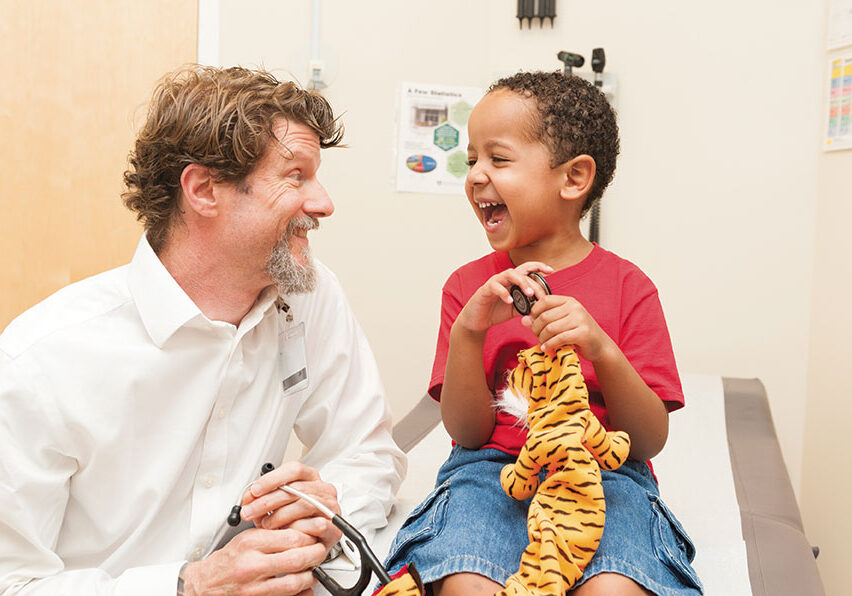Reviewed by Steven Dowshen, MD
What Is Diabetes?
Diabetes is a disease that affects how the body uses glucose, the main type of sugar in the blood. Glucose, which comes from the foods we eat, is the major source of energy needed to fuel the body. To use glucose, the body needs the hormone insulin. But in people with diabetes, the body either can’t make insulin or the insulin doesn’t work in the body like it should.
The two major types of diabetes are:
Type 1 diabetes, in which the immune system attacks the pancreas and destroys the cells that make insulin.
Type 2 diabetes, in which the pancreas can still make insulin, but the body doesn’t respond to it properly.
In both types of diabetes, glucose can’t get into the cells normally. This causes a rise in blood sugar levels, which can make someone sick if not treated.
Can Type 1 Diabetes Be Prevented?
Type 1 diabetes can’t be prevented. Doctors can’t even tell who will get it and who won’t.
No one knows for sure what causes type 1 diabetes, but scientists think it has something to do with genes. But just getting the genes for diabetes isn’t usually enough. In most cases, a child has to be exposed to something else — like a virus — to get type 1 diabetes.
Type 1 diabetes isn’t contagious, so kids and teens can’t catch it from another person or pass it along to friends or family members. And eating too much sugar doesn’t cause type 1 diabetes, either.
There’s no reliable way to predict who will get type 1 diabetes, but blood tests can find early signs of it. These tests aren’t done routinely, however, because doctors don’t have any way to stop a child from developing the disease, even if the tests are positive.
Can Type 2 Diabetes Be Prevented?
Unlike type 1 diabetes, type 2 diabetes can sometimes be prevented. Excessive weight gain, obesity, and a sedentary lifestyle are all things that put a person at risk for type 2 diabetes.
In the past, type 2 diabetes usually happened only in adults. But now, more kids and teens are being diagnosed with type 2 diabetes, due to the rapidly increasing number of overweight kids.
Although kids and teens might be able to prevent or delay the onset of type 2 diabetes by managing their weight and increasing physical activity, other risk factors for type 2 diabetes can’t be changed. Kids with one or more family members with type 2 diabetes have an increased risk for the disease, and some ethnic and racial groups are more likely to developing it.
How Can I Protect My Kids From Developing Type 2 Diabetes?
These steps can help reduce your kids’ risk for developing type 2 diabetes and the health problems it can cause:
- Make sure kids eat a healthy diet. Encouraging your kids to eat low-fat, nutrient-rich foods— like whole-grain cereals and breads, fruits, vegetables, dairy products, and lean proteins — can help prevent excessive weight gain, a major risk factor for type 2 diabetes.
- Limit sugary foods and beverages. Consuming lots of sugar-filled foods and beverages — like sodas, juices, and iced teas — can lead to excessive weight gain.
- Encourage lots of physical activity. Staying active and limiting the time spent in sedentary activities — like watching TV, being online, or playing video or computer games — can help reduce the risk of weight gain and help prevent the onset of type 2 diabetes. Being active can be as simple as walking the dog or mowing the lawn. Try to do something that gets you and your kids moving every day.
If you think your child may be overweight and at risk for type 2 diabetes, talk to your doctor or a registered dietitian. They can help you learn what your child’s weight goals should be and how to reach them.
Information provided by KidsHealth.org from Nemours Children’s Health. © 1995-2021. The Nemours Foundation/KidsHealth®. Reprinted following guidelines.
Diagnosis – One Mother’s Story
My very energetic five year old suddenly became very thirsty, and was hungry more often. It was during a summertime heat wave and he’s a growing boy, but his appetite was suddenly that of a grown man and his water intake was unreal.
When we went in for his checkup, his blood sugar level was beyond life-threatening, and my son was diagnosed with Type 1 Diabetes. Of course I never thought that this was something my family would encounter and I wish I had heard someone’s story so I could have known the signs. This month is National Diabetes Awareness Month — the perfect time for all parents to learn more about diabetes, and be aware of early warning signs.
Posted in: Health & Nutrition
Comment Policy: All viewpoints are welcome, but comments should remain relevant. Personal attacks, profanity, and aggressive behavior are not allowed. No spam, advertising, or promoting of products/services. Please, only use your real name and limit the amount of links submitted in your comment.
You Might Also Like...

Create Intimacy Without Taking Your Clothes Off
By the time your kids are asleep, your mood is exhausted, not erotic. In theory, you want to connect with your partner. In reality, you’re too tired to make the […]

The Well Stocked Pantry for a Successful Cooking Experience
The secret to being a good home cook is having a well-stocked pantry. This doesn’t mean having everything under the sun in your pantry (and never using half of it). […]

Making the North State a Better Place for Children
Making the North State a Better Place for Children The first years of life play a crucial role in learning and development. Parents, grandparents, siblings and friends all contribute to […]

Camp Okizu: More Than Just Fun And Games
Camp Okizu expands across 500 acres at Berry Creek, 70 miles north of Sacramento, and embraces thousands of children and families every year. Four lakes, sleeping cabins and shower facilities […]




